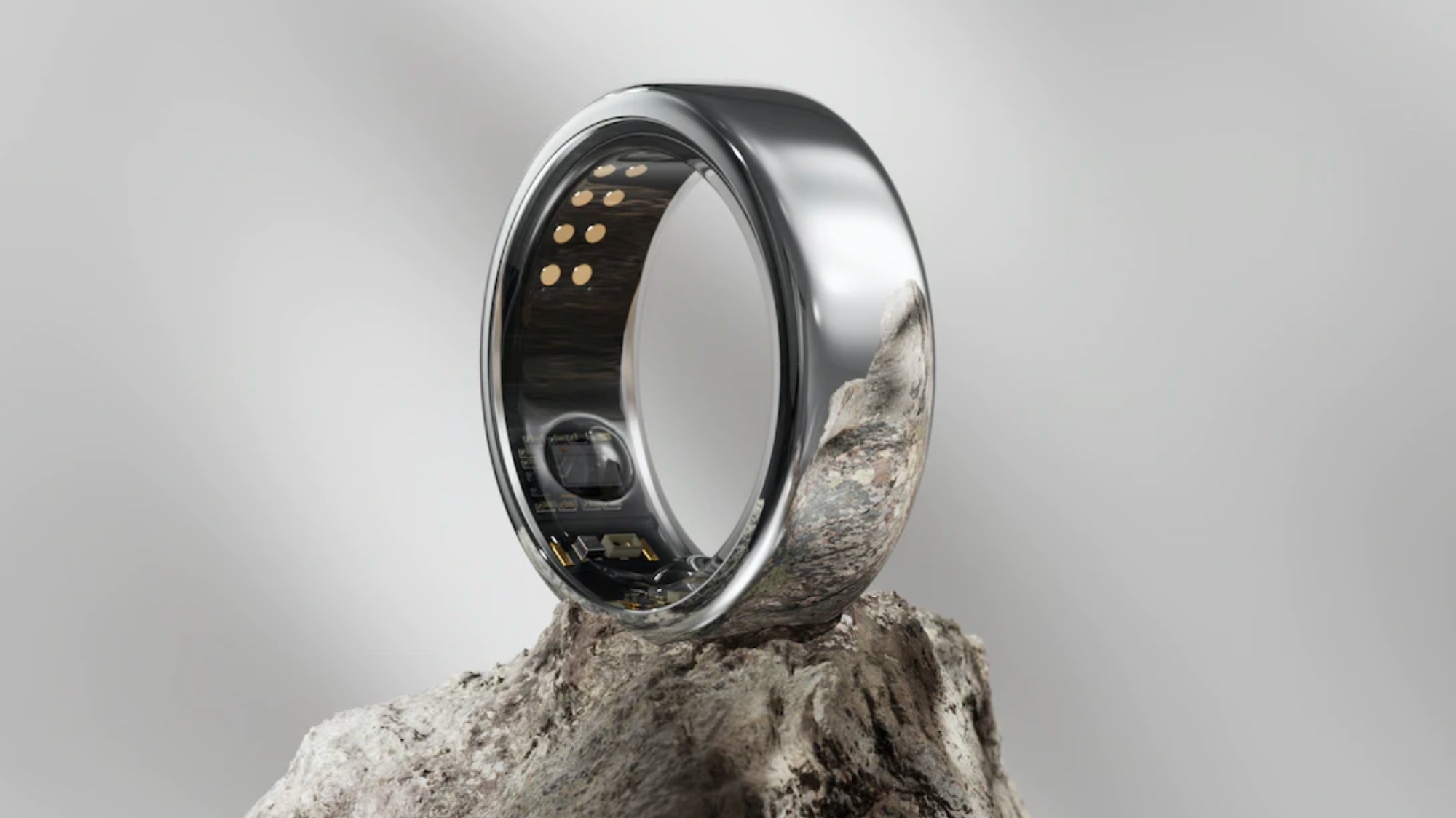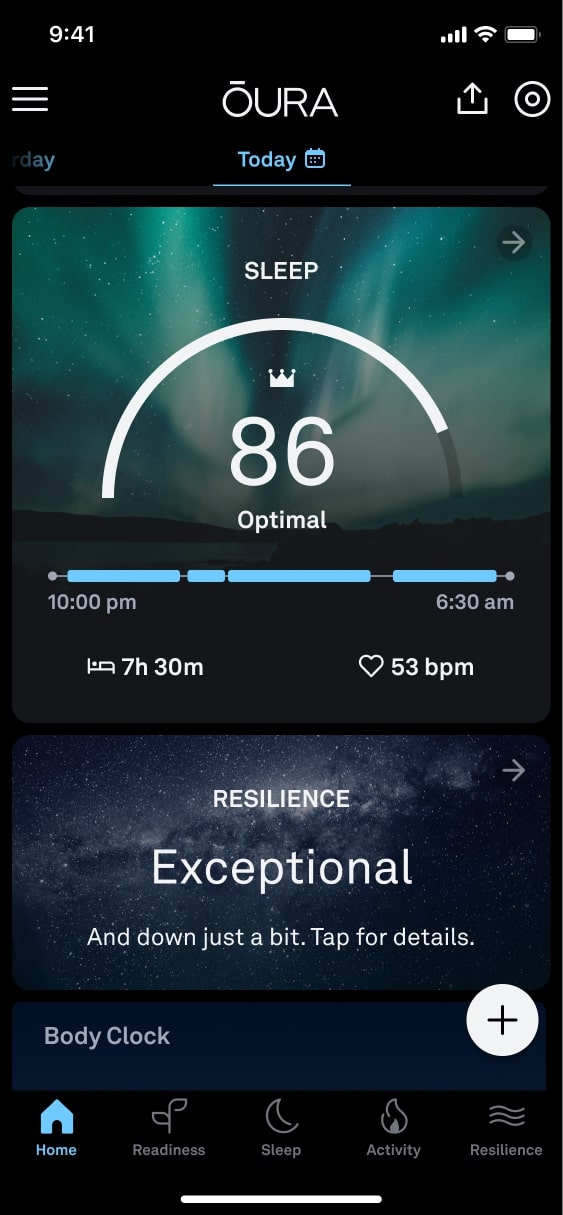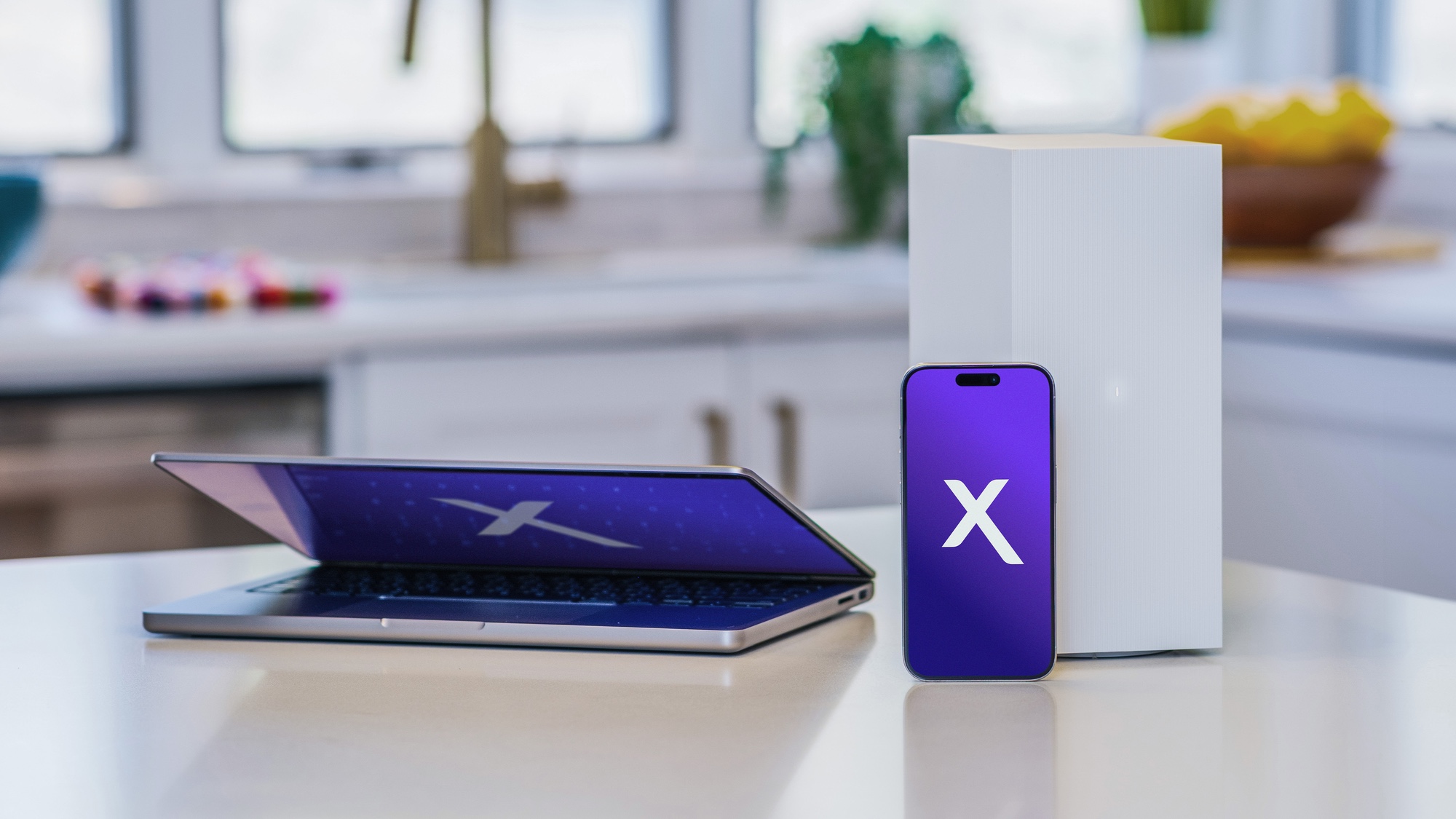
The third-generation Oura Ring is getting another feature, and it’s rolling out right now, January 31, 2024. It's the latest stress management feature aimed at helping you feel calmer throughout the day, and we can't wait to test it out.
Having already released the Daytime Stress and Reflections features for Oura Ring Generation 3 last year, the next rollout phase to launch the Resilience tool is officially underway. Oura gave the lowdown on what we can expect to see and how members can incorporate each stress tool into their daily routines.
Undoubtedly one of the best fitness trackers available right now, especially if you like its minimalist design, this new tool further expands on Oura's range of wellbeing features. Here's everything you need to know about the Resilience tool and how to use it.
What is the Oura Resilience stress feature?
The Resilience feature was announced in 2023, but it's finally rolling out to the Generation 3 rings. The aim is to help you develop resilience, sometimes known as mental strength, which is the ability to deal with challenging situations as they come up.
In a recent Oura CEO interview with Tom Hale, we learned how the company plans to evolve following the release of the Daytime Stress and Reflections tools last year. Resilience is just one of many health features members can expect to see coming their way.
Hale noted that the feature “creates an assessment of member’s ability to withstand physiological stress” by looking at Daytime Stress load and recovery and recovery during sleep. Resilience should help members “balance between stress and recovery” using insights and recommendations from Oura.
Hale told us during the interview, “Our long-term vision is to shift the healthcare paradigm from one of disempowerment to one where people are in the driver’s seat of their health…the Oura app takes the effort out of journaling, tracking mood, and tagging.”
Sign up to get the BEST of Tom's Guide direct to your inbox.
Get instant access to breaking news, the hottest reviews, great deals and helpful tips.

Daytime Stress, released October 2023, helps you track moments of stress to the minute using biometrics like night-time heart rate variability (HRV), heart rate, body temperature and fluctuations that can indicate stress. You can then see which of the four stress levels you're at with updates as often as every 15 minutes.
Next to arrive was the AI-powered Reflections tool, which allows users to journal in-app using voice record or by typing out moods and thoughts. AI integration suggests tags to “connect the dots between the mind and body,” helping prioritize recovery and put your stress into context. Some studies found journaling to be effective at managing stress and improving health, so if you’re unfamiliar with the Daytime and Reflections tools, we cover the latest Oura Ring features in more detail, including how to use them.
Mindfulness is having a moment, and Oura is miles ahead of the game for wearable, trackable mental and physical health stats on your finger. But the smart rings market is hotting up; the Samsung Galaxy Ring is tipped to launch this summer, and Amazfit launching its own Helio smart ring means Oura must continue stepping up to stay ahead of the competition.
When are we most stressed?
Since the staged rollout process began last year, Oura has been drilling down on data from its members with some surprising results. According to the data, users “exhibit higher stress durations on Fridays and Saturdays,” most likely due to increased activity that triggers a physiological stress response.

Oura also states that the average number of minutes “users experience stress for” sits at 95.6 minutes per day, and 50% of users report “stressed” days. Unsurprisingly, alcohol is one key contributor. According to the company, those who mention alcohol “experienced a higher average duration of stress,” which sits at approximately 138.5 minutes compared with the average 92.6 minutes of all users.
One study into helping pregnant women reduce stress by researchers from San Diego State University and the University of California, Irvine, looked at those using the Headspace meditation app and Oura in a month-long trial. According to the data, participants “reported a significant reduction in anxiety, improvement in sleep quality, and increase in energy levels, among other benefits.”
How to get started
So far, the rollouts have been staged, meaning members will receive access at random. You might not be able to view these features in the Oura app immediately but be sure to update your firmware and continue to check your settings.
Those with access should be able to view Daytime Stress from the homepage, and Reflections will be available as a home card toward the end of the day, alongside Bedtime Guidance. Active Gen3 and Gen2 members and those with iOS should be able to access the tools.
We will update this page as and when users receive access to Resilience over the next few weeks with instructions on how to begin using the feature. While you're waiting, it's worth checking out all the Oura Ring's wellbeing features to get a head start.
More from Tom's Guide

Sam Hopes is a level 3 qualified trainer, level 2 reiki practitioner and senior fitness writer at Tom's Guide. She is also currently undertaking her Yoga For Athletes training course. Sam has written for various fitness brands and websites over the years and has experience across brands at Future such as Live Science, Fit&Well, Coach, and T3.
Having worked with fitness studios like F45 and Virgin Active, Sam now primarily teaches outdoor bootcamps, bodyweight, calisthenics and kettlebells. She also coaches mobility and stretching-focused classes several times a week and believes that true strength comes from a holistic approach to training your body.
Sam has completed two mixed doubles Hyrox competitions in London and the Netherlands and finished her first doubles attempt in 1:11.
